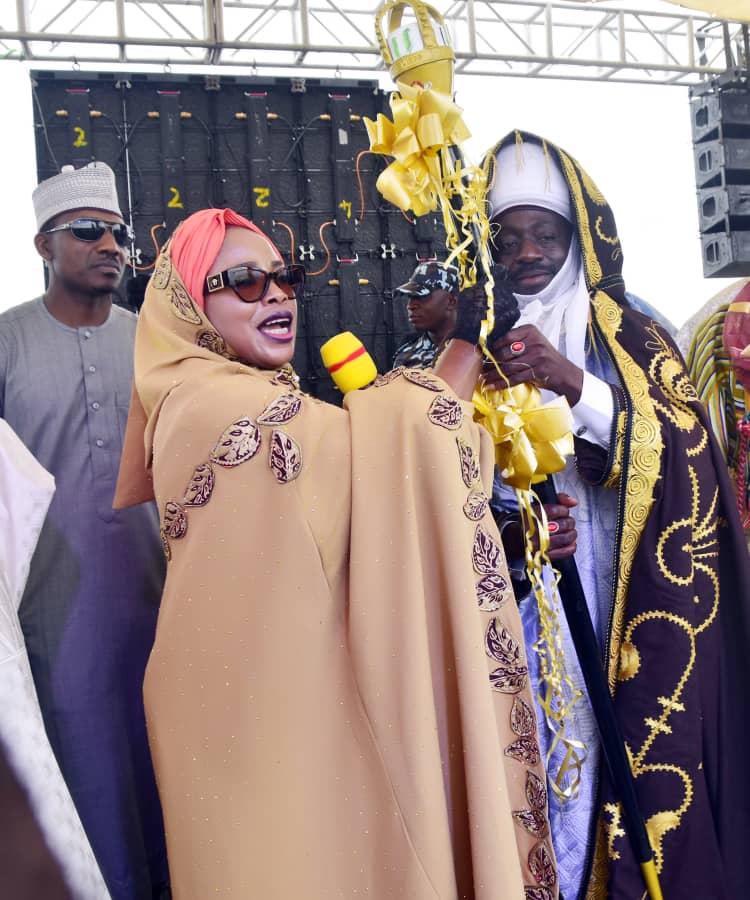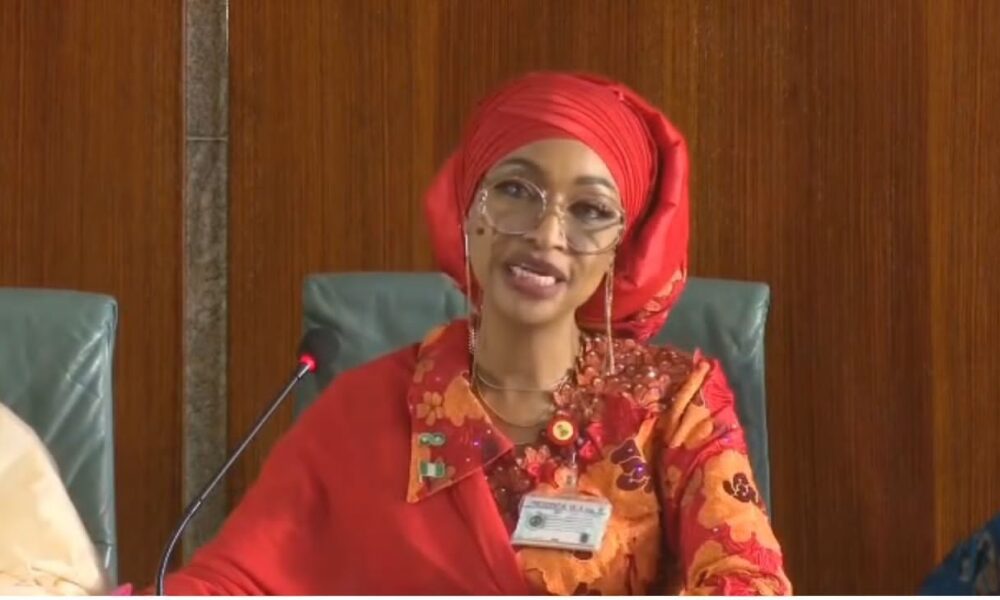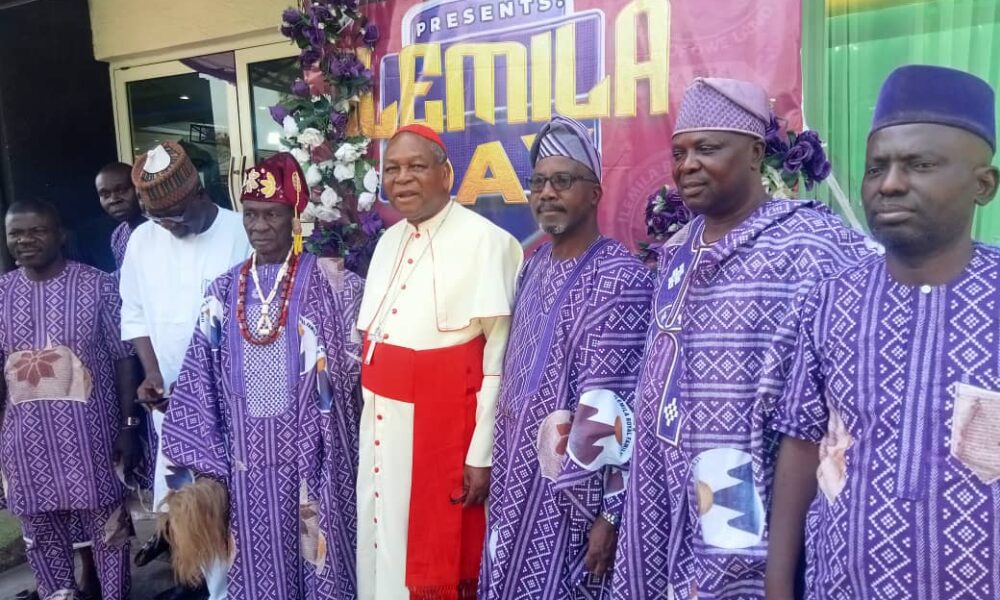***Canvasses for constitutional role for traditional rulers
The Minister of State for the Federal Capital Territory (FCT), Dr. Ramatu Tijjani Aliyu, on behalf of the FCT Administration, presented the staff of office to Sarkin Bwari, Alhj. Awwal Musa Ijakoro II, who had earlier been crowned by the kingmakers.
A statement issued by her special adviser on Media Austine Elemue quoted the minister to have used the occasion to canvass for continued involvement of the traditional institution in nation-building efforts.

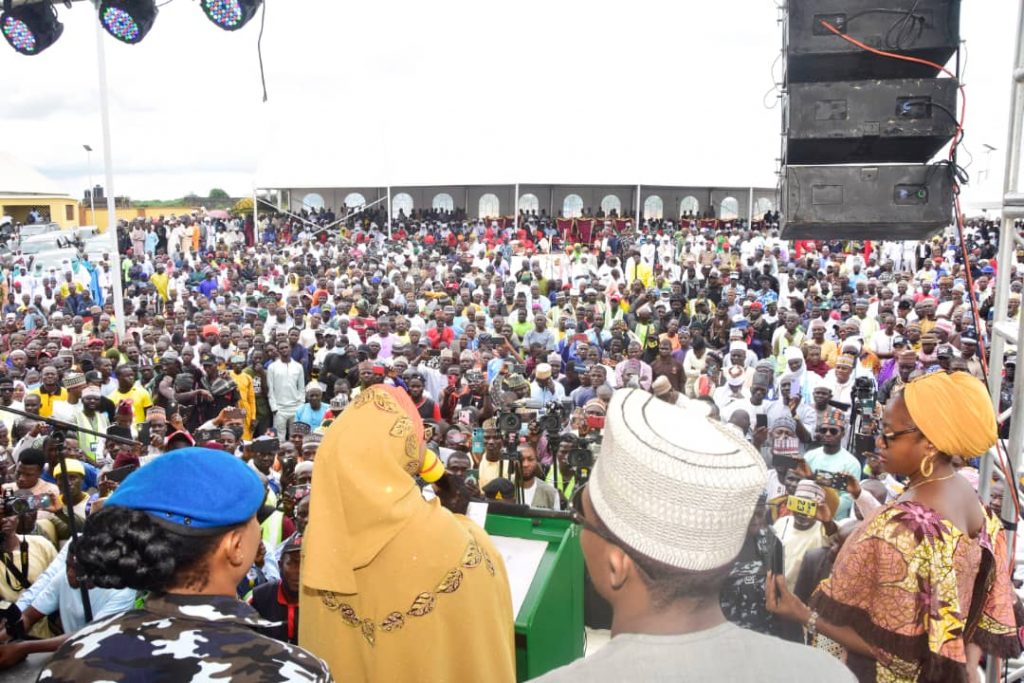
According to her, such roles would create condition for more effective and efficient peace building, and conflict prevention initiatives in Nigeria.
Aliyu disclosed that the crowned Sarkin Bwari is the 5th Sarki who emerged following the demise of his father on the 25th of August 2017, after a successful 41-year reign.
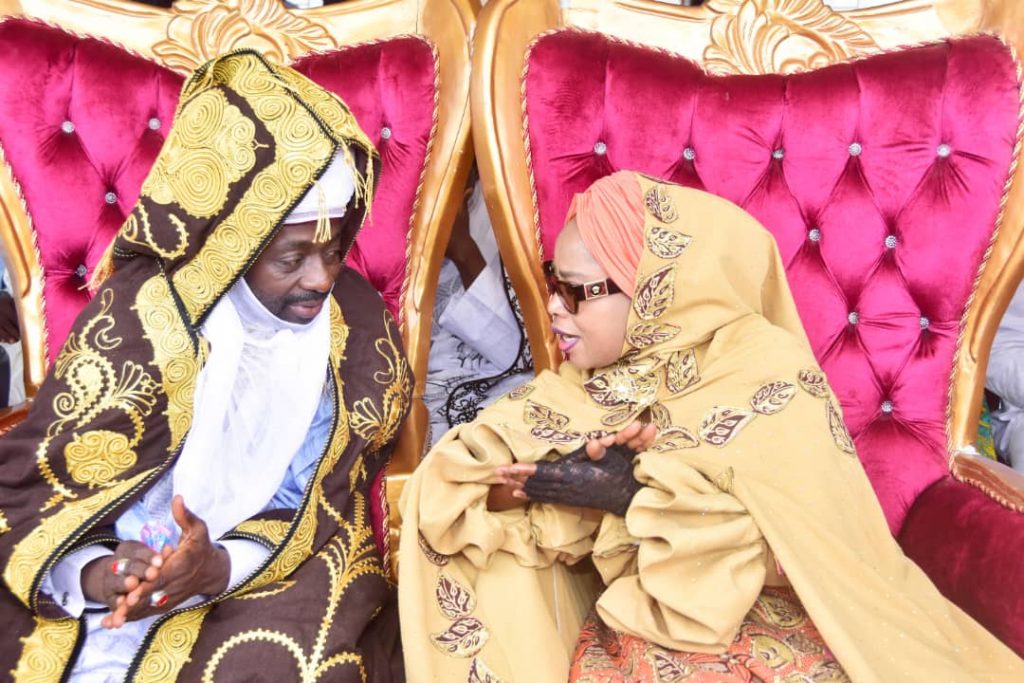
She also pointed out that the FCT Administration had conveyed a letter of appointment to Alhaji Awwal Musa Ijakoro II as a 2nd Class traditional ruler and the 5th Sarkin Bwari, in October 2017.
“Today’s ceremony is to formally present the staff of office to him in continuation of the legacies of his forebears, in the hope that he will provide good leadership, respect constituted authorities and promote harmonious relationships and respect for all tribes and inhabitants of Bwari community and its environs”.
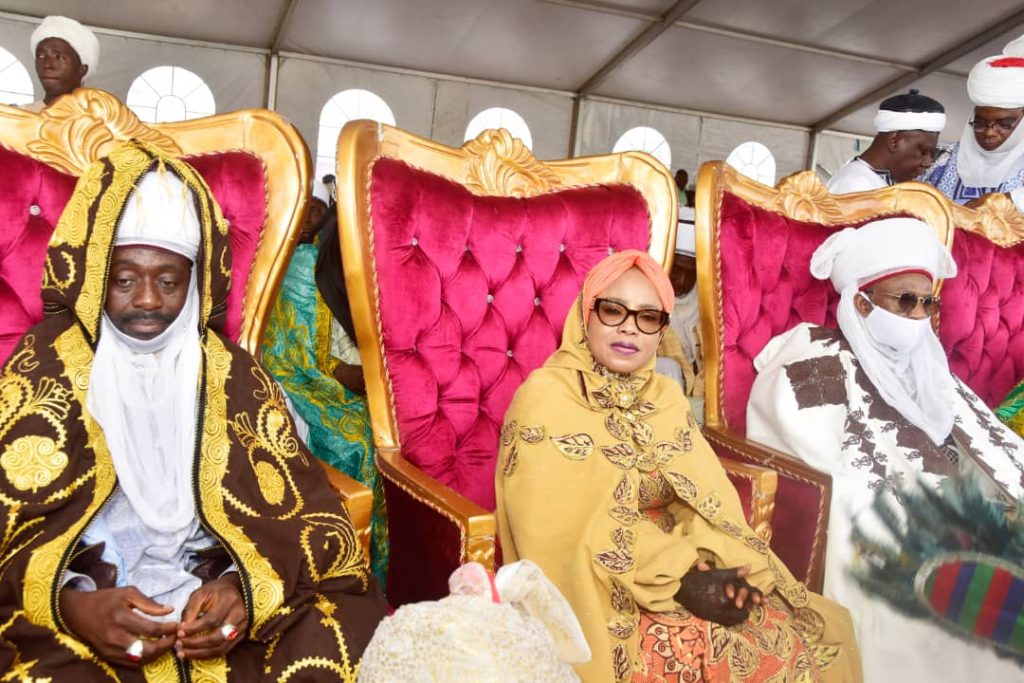
The minister used the occasion to remind graded chiefs and district heads that traditional rulers in both pre-colonial and post-colonial eras contributed immensely to the formation, extension, greatness, and promotion of good relationships among different kingdoms and empires across Nigeria.
Aliyu said; “The traditional institution has brought to bare great cohesion that hav/ sustained the development of political institutions that governed hitherto diverse peoples.
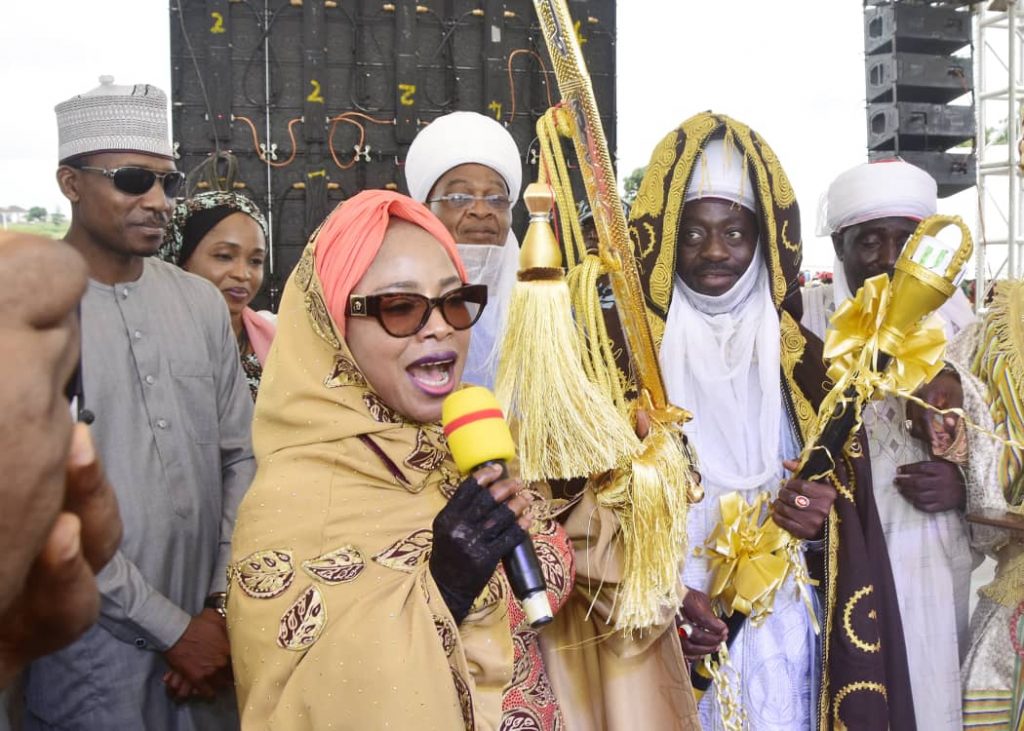
“I want to state unequivocally that with respect to social control, peace and conflict management, there is a strong body of evidence that traditional rulers, though of varied cultures and backgrounds, remain strikingly relevant in our society.
“I, therefore, recommend continued involvement of our traditional institutions in nation-building efforts in ways that would create conditions for more effective and efficient peace building, peace-making and conflict prevention initiatives in Nigeria”.
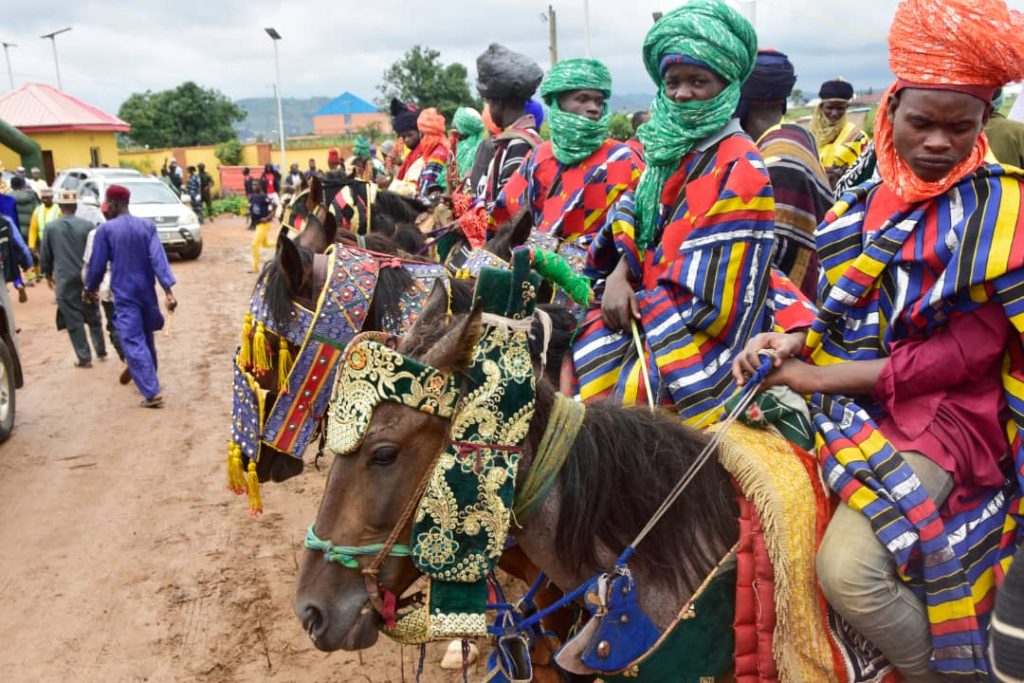
While lamenting that the role of traditional rulers would be limited without constitutionally acknowledging their relevance, she called on the three tiers of government to pass legislations that recognise the country’s traditional rulers as stakeholders and instruments of conflict management and peace building.
She reiterated the assertion that the staff of office was not just a symbol of authority, but also an instrument for promoting peace building and conflict management especially in the face of increasing insecurity in various parts of the country.
The minister warned that the FCT Administration will not spare any traditional ruler that fails to live up to this expectation, by aiding and abetting criminality in his domain.
“It is not in our character, no matter the level of enticement, to betray the trust bestowed on us. As traditional rulers and the custodian of our traditions, this obligation is even more fundamental.
“Indeed, any betrayal of public trust shall stand condemned and will not be acceptable in the seat of Government where President Muhammadu Buhari is the Governor General,” she further warned.
In his remarks, the Mandate Secretary, FCT Area Council Services Secretariat, Hon. Ibrahim Abubakar Dantsoho, described the event as significant in the history of Bwari chiefdom, while charging the new Sarkin Bwari on safety and security of his domain.
He also charged him to work with other traditional rulers in the territory.
He commended the kingmakers of Bwari chiefdom and the chairman of Bwari area council for the peaceful selection process leading to the event.
The occasion was graced by the Sultan of Sokoto, HRM. Muhammadu Sa’ad Abubakar, who was represented by the Etsu Nupe, Alhj. Yahaya Abubakar, Chairman FCT Council of Chiefs and Ona of Abaji, HRM. Adamu Baba Yunusa, and other first class traditional rulers from within and neighbouring states.
Wives of governor of Kebbi, Yobe, and Zamfarai State were also present.

